Organic CTR, or organic click-through rate, plays a crucial role in the success of your website's SEO performance.
Understanding and optimizing your organic CTR is essential for increasing both traffic and search engine rankings.
While optimizing for click-through rate (CTR) may appear to be a simple task, many website owners overlook its importance.
You may not have direct control over your website's traffic or ranking, but there are steps you can take to enhance your search engine visibility, particularly within the Google Search Console.
In this article, we will delve into what organic CTR is, why it is important, the reasons to measure it, the limitations it has, and the best practices to boost your organic CTR.
By implementing the strategies that follow, you can enhance your website's visibility, attract more clicks, and achieve better overall SEO performance.
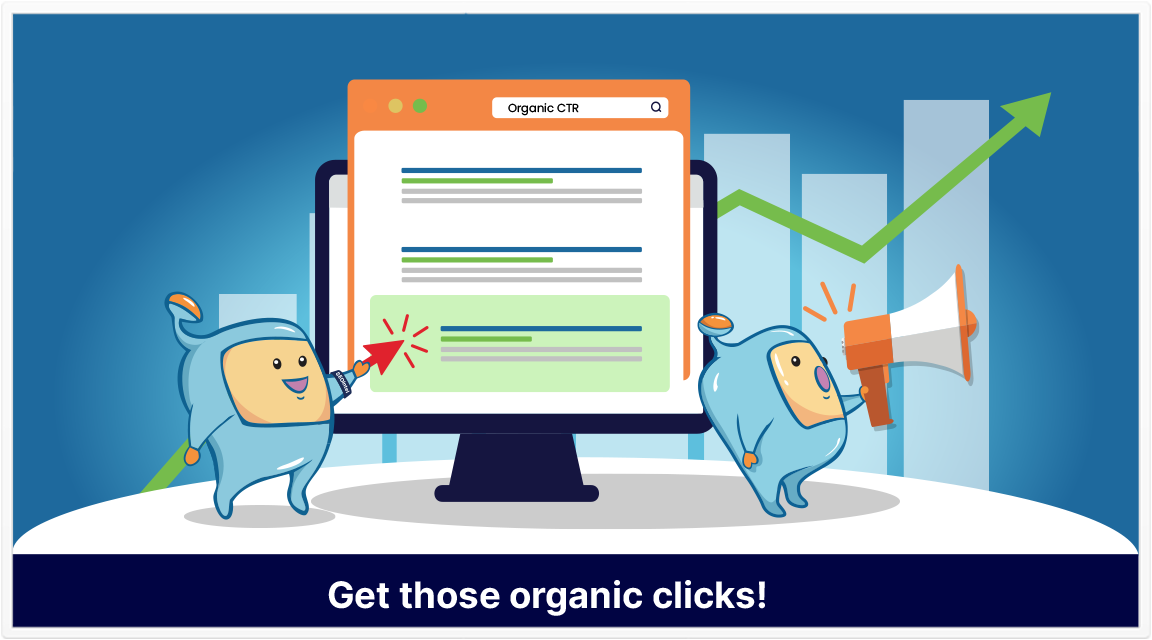
Here is what you will read in this article:
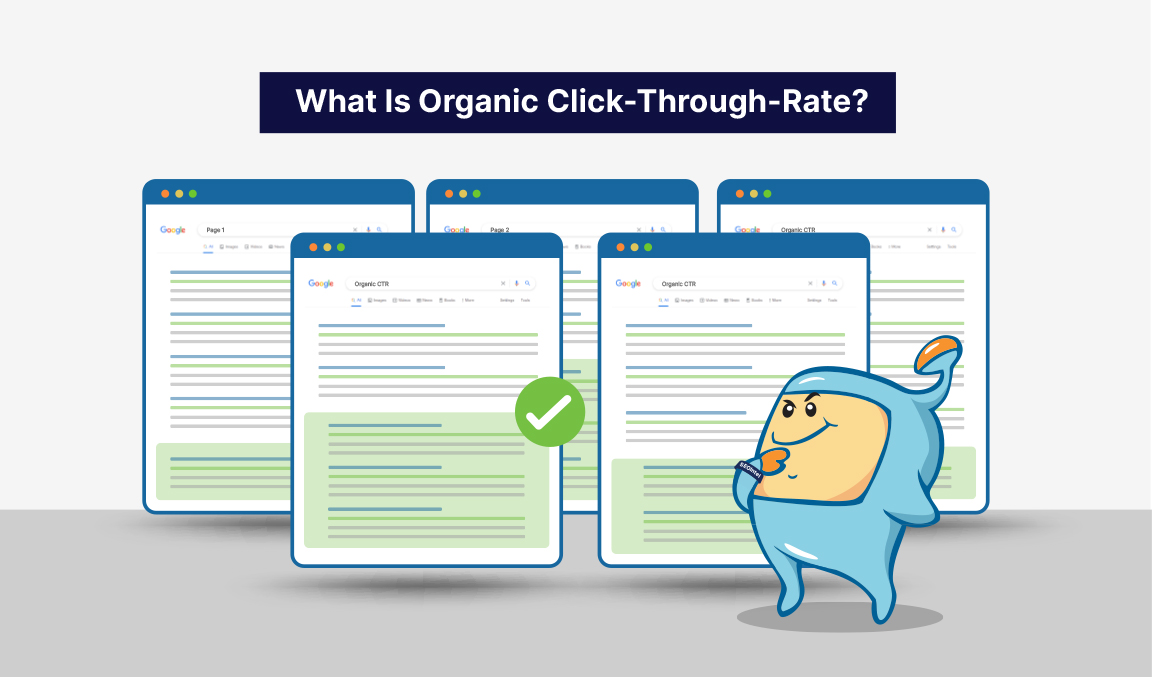
Organic click-through rate (CTR) is a metric that measures the percentage of search engine users who click on a website's link after seeing it in the search results.
It indicates the level of engagement and interest that your website generates among search engine users.
Organic CTR is not limited to paid advertising but also applies to the organic search results that appear based on the relevance of the content.
When a user performs a search query, the search engine presents a list of results on the search engine results page (SERP).
The CTR is calculated by dividing the number of clicks a website receives by the number of impressions it gets.
For example, if your website appears in the search results 100 times and receives 10 clicks, the organic CTR would be 10%.

Organic CTR is important for two main reasons:
Firstly, a higher organic CTR means more traffic to your website.
When users find your website appealing and relevant in the search results, they are more likely to click on your link and visit your site.
Increasing your CTR can lead to a significant boost in organic traffic, even without improving your search engine rankings.
Secondly, organic CTR is considered a ranking signal by search engines.
When search engines observe that users consistently click on your website's link, they interpret it as a sign of relevance and quality.
This can positively impact your search engine rankings, as search engines aim to present the most relevant and engaging results to their users.
Higher CTR can contribute to improved organic search rankings.

Measuring your organic CTR allows you to assess the effectiveness of your search engine listings and understand the relative value of each ranking position.
Not all ranks are created equal, and monitoring your CTR helps you identify the positions that generate the most clicks and traffic for your website.
By tracking and analyzing your organic CTR, you can make informed decisions about your SEO strategies and optimize your search engine listings accordingly.
It enables you to set realistic goals, measure the success of your marketing campaigns, and refine your content and website updates to attract more clicks and improve overall performance.
It's worth noting that organic CTR has its limitations.
While it provides insights into user engagement and the effectiveness of your search engine listings, it doesn't directly determine the quality of traffic or guarantee conversions.
Additionally, the exact relationship between CTR and search engine rankings is not fully disclosed by search engines.
However, focusing on improving your CTR can lead to positive outcomes for your website's visibility and traffic.

While organic CTR is a valuable metric, it does have some limitations.
Here are a few to consider:
1. Quality of Traffic
CTR alone cannot determine the quality or relevance of the traffic your website receives.
While a high CTR indicates user interest, it doesn't guarantee that visitors will engage with your content or convert.
2. Conversion Prediction
Clicking on a search result does not guarantee that users will take the desired action on your website, such as making a purchase or filling out a form.
CTR does not directly correlate with conversion rates.
3. Ranking Impact
While CTR can influence search engine rankings, the exact relationship between the two is not publicly disclosed by search engines.
It's important to focus on other SEO factors as well, such as content quality, relevance, and user experience.
Despite these limitations, organic CTR remains a valuable metric for understanding user engagement and optimizing your search engine listings.
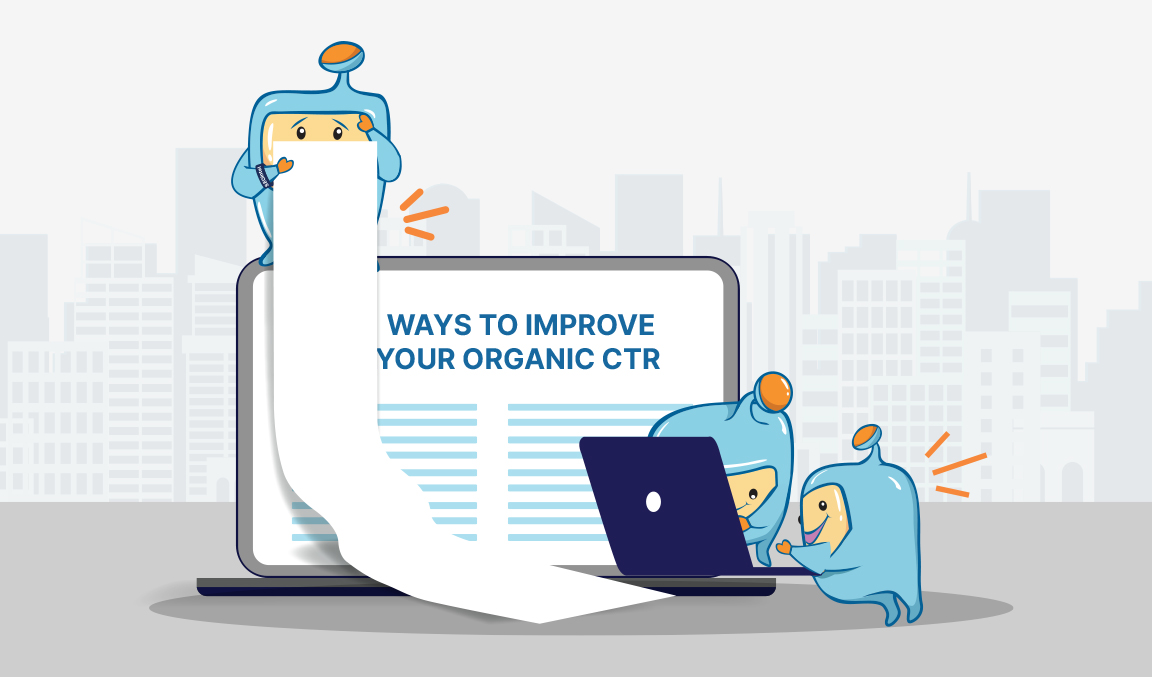
To improve your organic CTR and maximize the effectiveness of your search engine listings, consider implementing the following best practices:
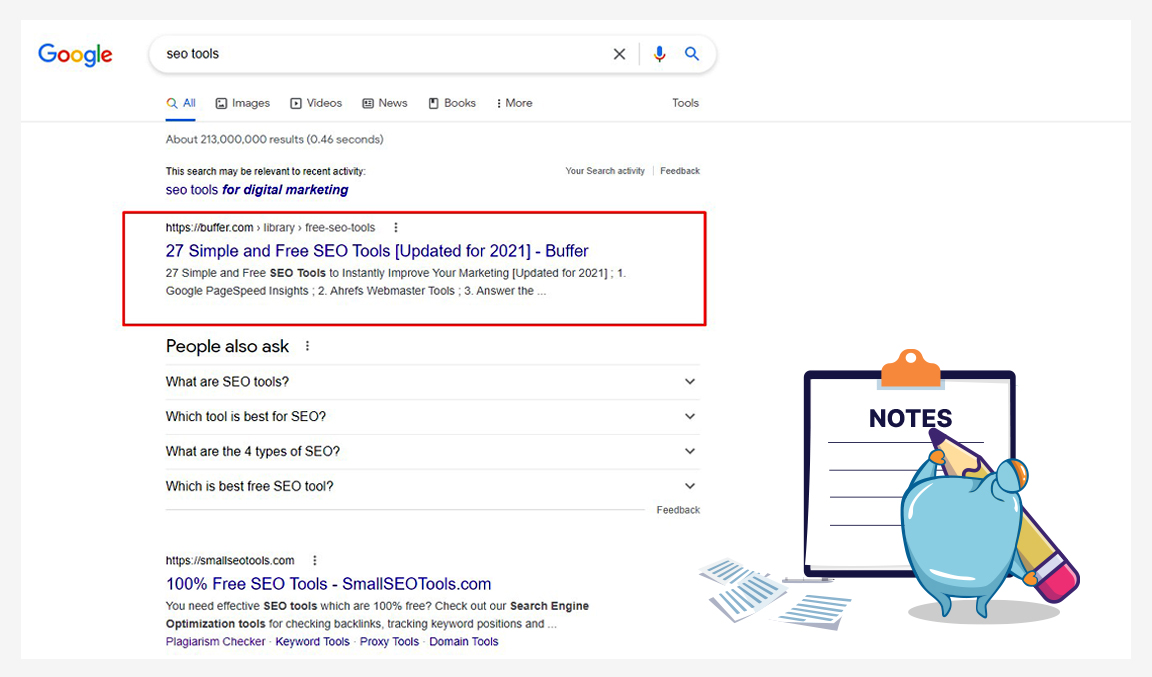
Including brackets in your title tag can make it more visually appealing and draw attention to your listing.
Studies have shown that headlines with brackets can significantly increase click-through rates.
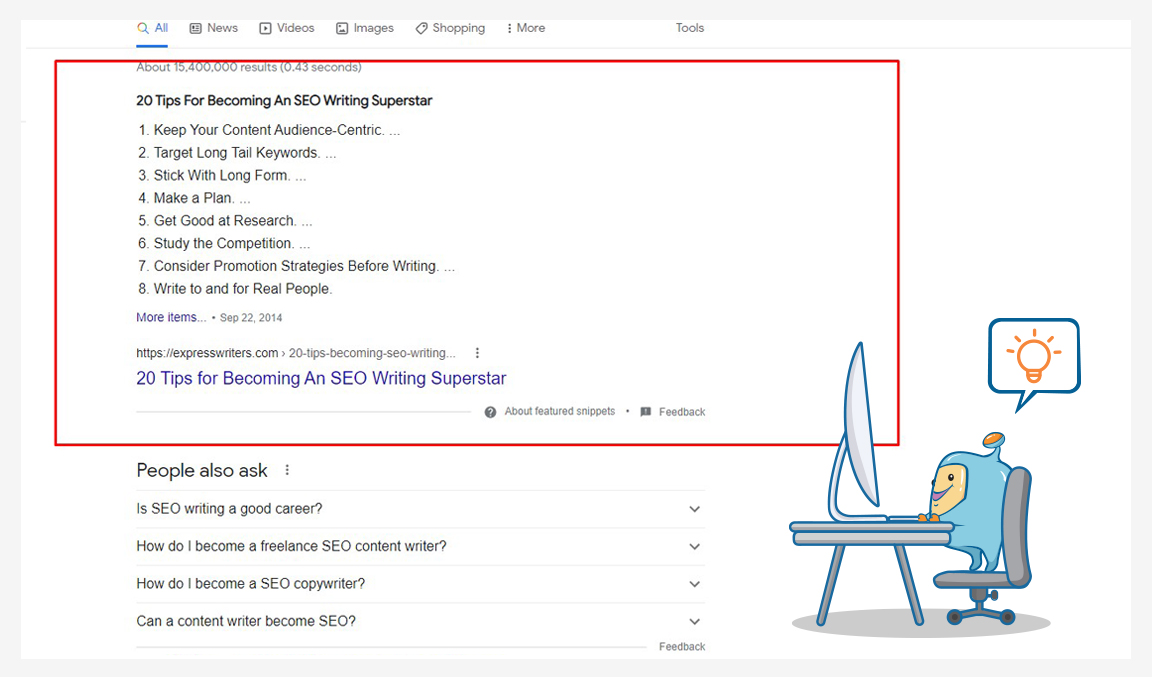
Incorporating numbers in your title can make it more compelling and attract users' attention.
Numbers suggest specific content and help users understand the value they can expect from clicking on your link.
Optimize your URLs to be short, descriptive, and enticing.
Clear and concise URLs make it easier for users to understand the relevance of your content and increase the likelihood of clicks.
Craft a compelling meta description that accurately reflects your content and entices users to click.
Highlight the unique value your page offers and provide a clear call-to-action to encourage clicks.
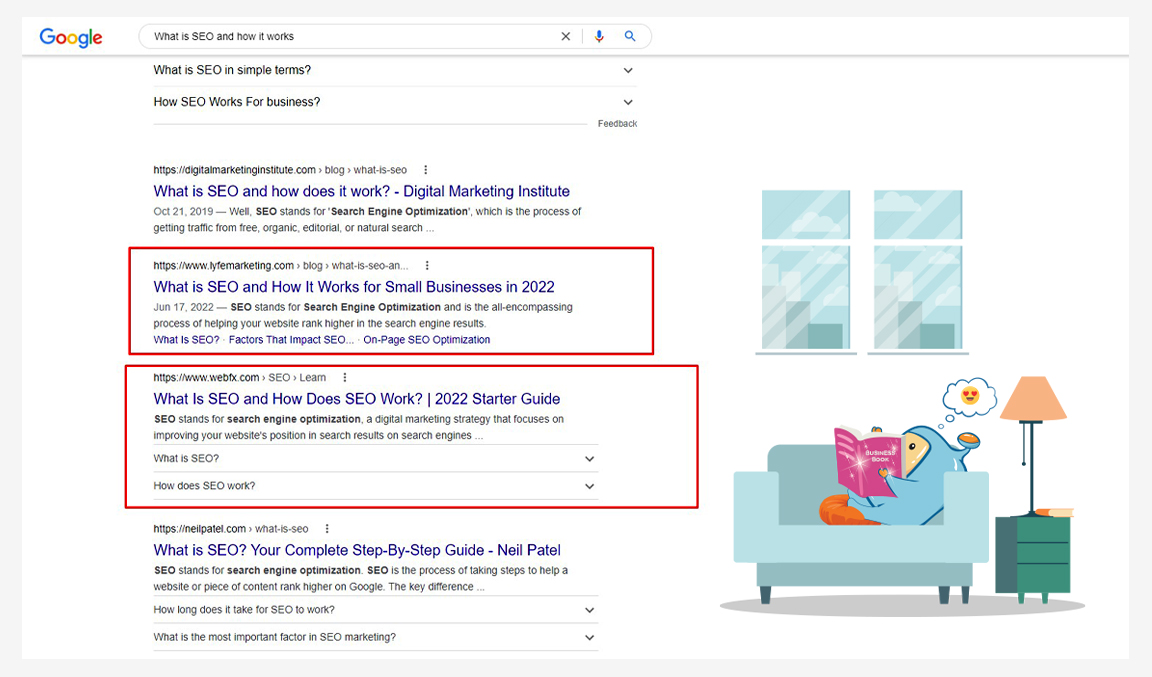
Including the current year in your title and meta description can indicate that your content is up-to-date and relevant.
This can attract users who are looking for the latest information.
While it may be tempting to use clickbait tactics to generate clicks, it's important to provide accurate and honest representations of your content.
Misleading users with exaggerated claims can lead to high bounce rates and damage your website's credibility.

Incorporate emotional triggers in your title and description to connect with users on a deeper level.
Emotionally charged words can evoke curiosity, interest, or excitement, increasing the likelihood of clicks.
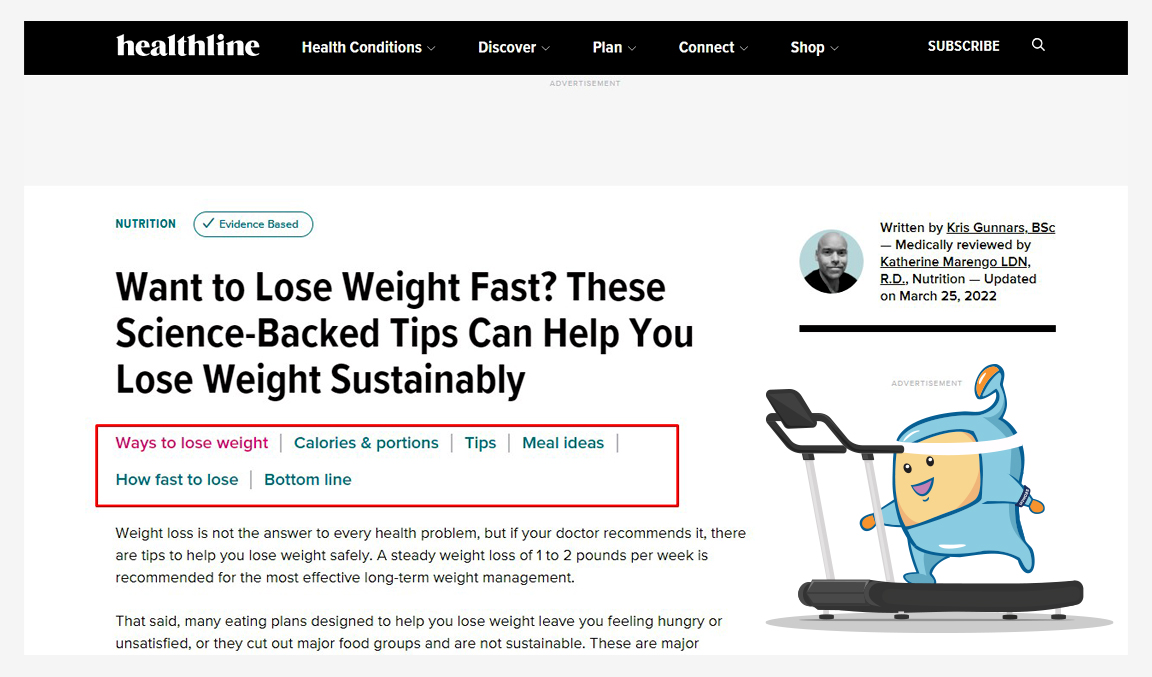
Implement structured data markup to enhance your search results with rich snippets and sitelinks.
Rich snippets provide additional information, such as ratings and reviews, and sitelinks help users navigate directly to relevant sections of your website.
If your content is long and comprehensive, consider including a table of contents at the beginning.
This improves user experience by allowing users to quickly navigate to the specific information they're looking for, increasing engagement and click-through rates.
Take advantage of headline analyzer tools to optimize your title tags.
These tools analyze your headlines and provide suggestions to improve their effectiveness and click-through rates.

Utilize Facebook ads to increase brand awareness and recognition.
Retargeting ads can expose your brand to a larger audience and reinforce its presence, making users more likely to click on your search engine listings.
Organic CTR is a vital metric in SEO that measures the percentage of users who click on your website's link in search engine results.
By focusing on optimizing your organic CTR, you can generate more traffic, improve search engine rankings, and enhance the overall performance of your website.
Implementing best practices, such as using brackets in title tags, including numbers, and crafting enticing descriptions, can significantly increase your organic CTR and drive better results for your digital marketing efforts.
Regularly measuring and analyzing your organic CTR allows you to make data-driven decisions and continuously improve your search engine visibility and user engagement.